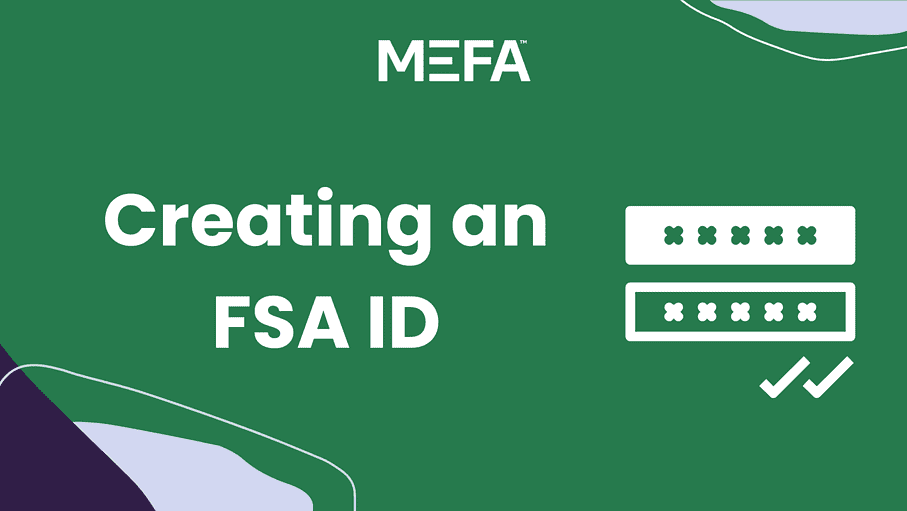The FAFSA is the single most important application a family can file to be considered for financial aid, and in order to submit it, you’ll need to create an FSA ID. MEFA’s Associate Director of College Planning Jonathan Hughes explains how to create your FSA ID, who needs to create an FSA ID, and what your FSA ID will be used for even after college. If you come from family who members include individuals with different immigration statuses, reference our guide, How to Create an FSA ID: A Guide for Mixed-Immigration Status Families, for helpful information. This guide is also available in Spanish.
Please note that this transcript was auto-generated. We apologize for any minor errors in spelling or grammar.
[00:00:00] So if you’re planning to submit the fafsa, the one thing you can do and should do now is get your F-S-A-I-D. This is how you log into and complete the fafsa. The F-S-A-I-D itself is a username and password set up with federal student aid. Students need to have one and so does at least one, and sometimes two parents.
And here’s how you get one. Go to student aid.gov and click on create account in the upper right hand corner. Now, here’s what you need to get an F-S-A-I-D. Your name, date of birth, email address, and social security number. If you don’t have a social security number, you can still get an F-S-A-I-D. There’s a process for that.
It’s just gonna take a little bit longer. Next, you need to set up a username and password, your actual F-S-A-I-D. Then you’ll enter your mailing address, phone number, language and communication preferences, as well as your challenge questions and answers. If you have a social security number, your F-S-A-I-D will be ready to use immediately.[00:01:00]
If you don’t have a social security number, it will take a few days to verify your identity. Once that’s done, you’ll get an email from Federal Student Aid congratulating you for having successfully set up your F-S-A-I-D. This is going to be your F-S-A-I-D for life, so don’t lose it. Once everybody in your family that needs an F-S-A-I-D has one, then you’re all set to file the FAFSA when it becomes available.
And by that point, most of the hard work will have already been done.













